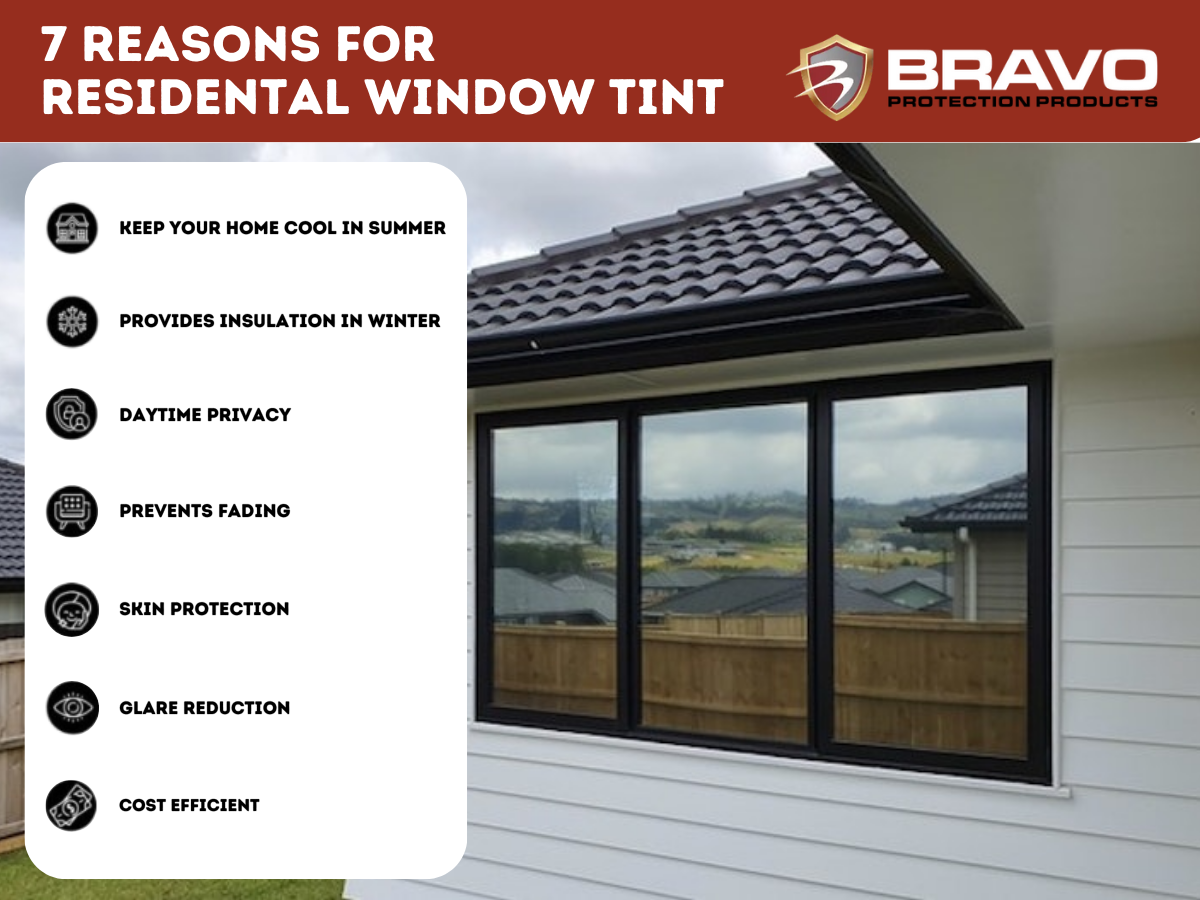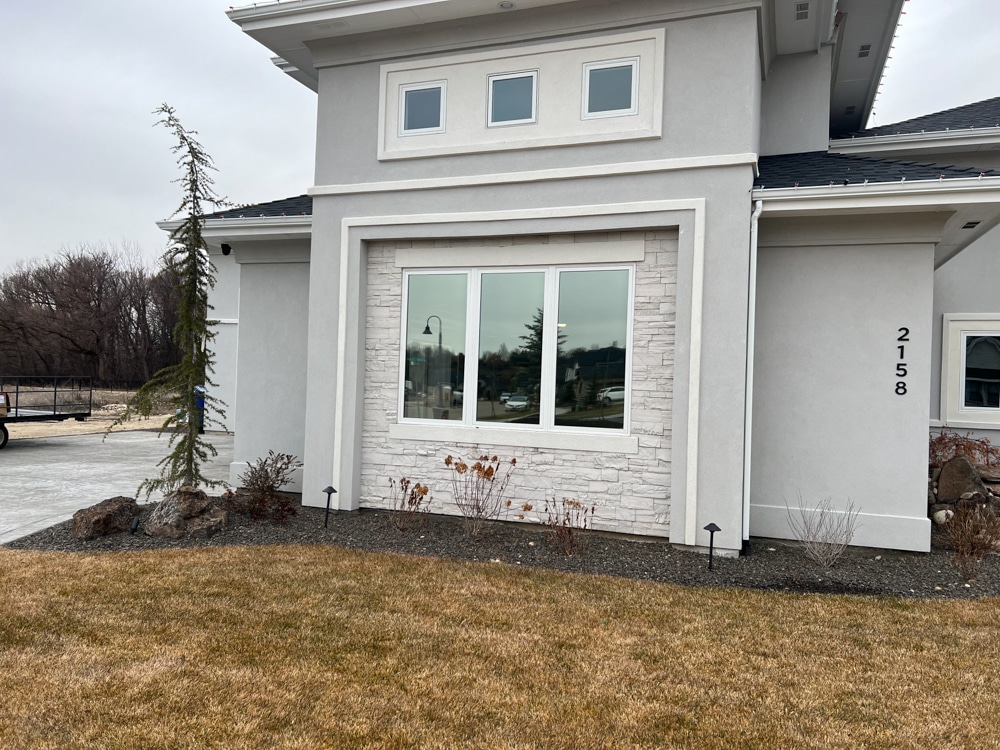Top Advantages of Setting Up Residential Window Tint for Your Residential property
Top Advantages of Setting Up Residential Window Tint for Your Residential property
Blog Article
How Residential Window Tinting Enhances Your Home's Energy Effectiveness
Residential home window tinting provides a compelling service for home owners seeking to enhance energy efficiency within their living areas. By applying specialized movies to windows, it effectively minimizes heat transfer, therefore stabilizing indoor temperatures and decreasing the demand for extreme heating or cooling. This not only reduces energy usage but additionally provides a much more comfortable setting by mitigating glow. Nonetheless, comprehending the nuances of exactly how tinting jobs and choosing the proper type for your home can be essential. Strangely enough, what elements should one take into consideration before making this investment?
Understanding Home Window Tinting
Recognizing home window tinting is important for homeowners looking for to enhance both convenience and power effectiveness in their home. Residential Window Tint. Window tinting involves the application of a thin film to the interior or outside surface of glass home windows. This movie can dramatically regulate the amount of sunlight and heat that enters a home, therefore affecting indoor climate problems
There are different sorts of window tinting movies readily available, each with distinctive residential properties. Dyed films take in solar energy, while reflective movies deflect it away from the glass surface. Ceramic movies supply a balance of visibility and warmth denial, making them a popular selection among homeowners. The effectiveness of window tinting is typically determined by its Visible Light Transmission (VLT) portion, which shows just how much light can pass with the film.
Benefits of Power Effectiveness
Window tinting not only boosts aesthetics but likewise plays a considerable role in boosting energy performance within property areas. By minimizing warm transfer via home windows, tinted movies create a more stable interior environment, which can result in significant decreases in power intake for cooling and heating. This power effectiveness translates into lower utility expenses, providing house owners with considerable lasting cost savings.

Furthermore, home window tinting boosts the convenience of living spaces. By minimizing glow and obstructing unsafe UV rays, colored home windows develop a more pleasurable atmosphere, which can cause enhanced health for residents. The security versus UV rays likewise assists maintain furnishings and flooring from fading, adding to the durability of home items.
How Tinting Works
Tinting movies operate through a mix of innovative products and technologies developed to regulate the amount of solar power going into a home. Mainly made up of polyester, these films typically integrate metal or ceramic particles that mirror and take in warmth. This twin capacity permits them to considerably minimize the infiltration of ultraviolet (UV) rays and infrared radiation while permitting visible light to travel through.
The efficiency of window tinting is measured by its solar heat gain coefficient (SHGC), which indicates just how find out this here much solar power is transferred through the home window. Reduced SHGC values are preferable as they denote greater heat rejection. Additionally, window colors can feature a range of tones, allowing home owners to tailor their aesthetic preferences while improving energy effectiveness.
Moreover, these movies work as a barrier, stopping heat loss during colder months by mirroring interior heat back into the home. This thermal insulation result matches the air conditioning advantages gotten during warmer months, adding to a well balanced interior climate year-round. By managing solar energy efficiently, property window tinting not only improves convenience but additionally plays an essential duty in lowering energy intake and decreasing utility expenses.
Picking the Right Tint

There are various kinds of window films available, consisting of colored, metalized, and ceramic. Colored movies are affordable but might have restricted sturdiness. Metalized movies use much better heat rejection yet can disrupt digital signals. Ceramic movies provide excellent heat control without jeopardizing exposure and are extremely resilient, making them a popular choice.
Visible light transmission (VLT) is an additional critical variable, as it indicates the amount of natural light that can pass with the tinted glass. Property owners should pick a color with a VLT that enhances their illumination choices while still supplying adequate glare reduction.
Additionally, examining the solar warmth gain coefficient (SHGC) can help establish how well a color can obstruct warmth from sunshine. A lower SHGC shows far better heat control, ultimately enhancing power effectiveness.
Installment and Upkeep Tips
Appropriate setup and maintenance are vital elements in making the most of the advantages of residential window tinting. To attain optimal outcomes, it is advisable to employ a certified expert for setup. This ensures that the tint is used correctly, preventing air bubbles, creases, or misalignment that can endanger efficiency. Experts additionally utilize specialized strategies and tools, which can enhance the sturdiness and effectiveness of the tint.
Following installment, maintenance is necessary to prolong the life of the home window film. It is suggested to wait at the very least 30 days before cleaning navigate to this site the tinted home windows to permit the glue to cure fully.
In addition, routine assessments are advantageous. Look for any kind of peeling or bubbling, which can show incorrect setup or wear over time - Residential Window Tint. Attending to these problems without delay can prevent more damage and keep power efficiency. By adhering to these installment and maintenance tips, homeowners can guarantee their window tinting continues to supply substantial energy savings and comfort for years to find.
Final Thought
In final thought, household window tinting offers as an efficient option for boosting energy efficiency within homes. By decreasing heat transfer and obstructing damaging UV rays, home window films contribute to lower energy consumption and improved indoor comfort.
Window tinting entails the application of a thin movie to the interior or outside surface of glass home windows. By reducing warm transfer via home windows, colored films develop a more secure interior environment, which can lead to significant reductions in power intake for home heating and cooling.The performance of window tinting is determined by its solar heat gain coefficient (SHGC), which indicates just how much solar energy is transferred via the home window. By handling solar energy properly, household window tinting not only boosts comfort yet also plays a vital function in decreasing energy usage and decreasing utility costs.
By decreasing heat transfer and blocking damaging UV rays, window films add to decrease power intake and enhanced indoor convenience.
Report this page